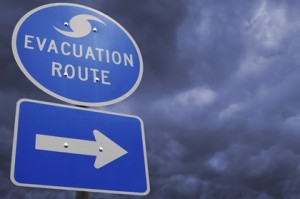Hurricane Preparedness
Posted on: June 3, 2015Categories: LiveWell 24/7
This past Monday, June 1st, was the official start of the six month Atlantic Hurricane Season which peaks in September and ends around November. Luckily, this year’s hurricane season is expected to be a calm one; however the number of storms doesn’t matter because it only takes one to cause a major impact. South Carolina is one of the most vulnerable states for hurricanes and this week, May 31st through June 7th, is South Carolina Hurricane Awareness Week 2015. Being aware of current storm conditions and being prepared is vital when it comes to Hurricane season, especially if you live in a vulnerable state like South Carolina. The greatest threat to life and property is storm surge, but other conditions such as wind, tornadoes, flooding associated with heavy rainfall can all cause damage too. Now is the time to prepare basic materials and plans- not when a storm is already a threat. If a hurricane does occur, emergency responders may not be able to get to you right away so it is important to be prepared to be self-sustaining for at least 3 days. Here are some tips to make sure you are prepared in the event of a hurricane:
Have a hurricane plan and make sure everyone knows the plan
Know your evacuation route
Organize an emergency kit that includes:
3 days water (2 quarts per person per day)
Non-perishable food
Flashlight with extra batteries
Portable battery operated radio
Non-electric can opener
Essential medicines
Cash & credit cards
Make arrangements for pets (they are not allowed in official hurricane shelters)
Make sure your rain gutters and downspouts are not clogged
If a hurricane is likely:
Listen to the TV and radio for information
Follow official instructions for preparation and evacuation information
If a hurricane occurs:
Stay indoors and away from glass and doors
Don’t be fooled if there is a break in the storm because it could be the eye
Take refuge in a small interior room, closet or hallway
After a hurricane:
Wait until area is safe according to officials
Don’t drive in flooded areas
Avoid open flames-use a flashlight to observe damage
Report and avoid down power lines
Don’t use tap water until authorities announce it is safe to drink
Source: Washington Post, SCEMD





